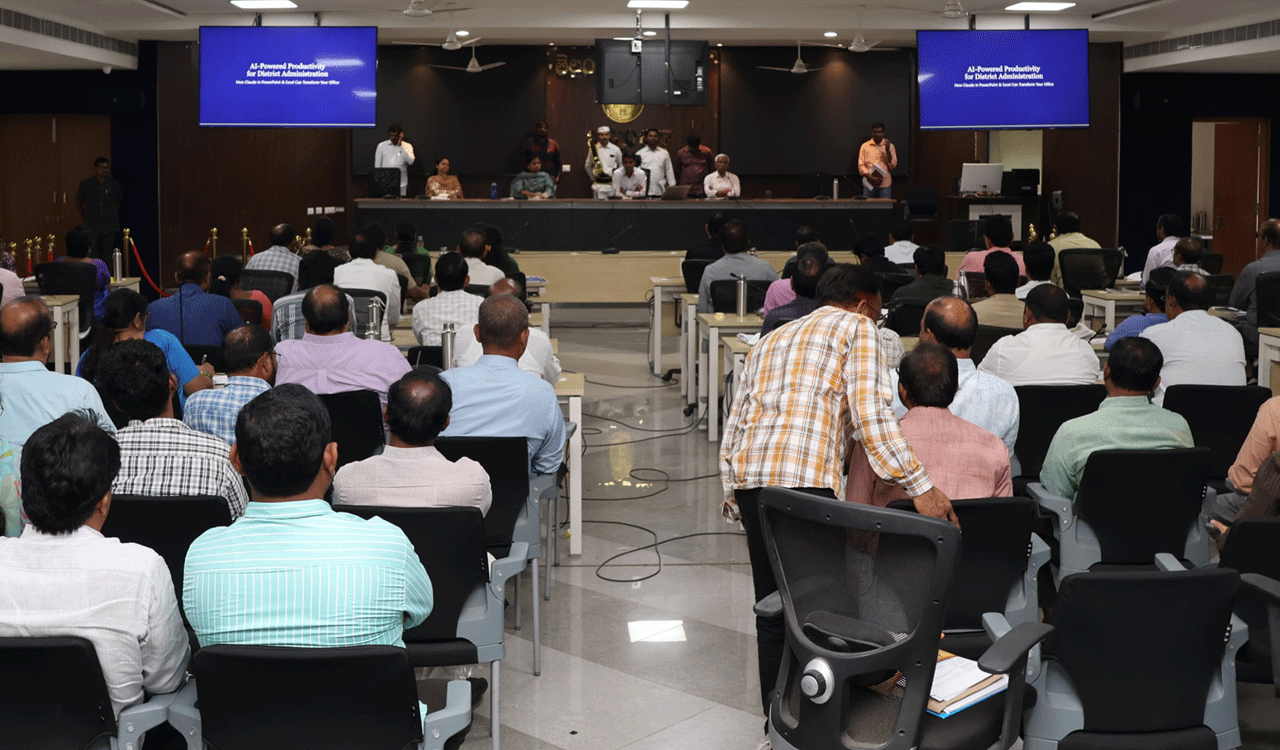Opinion: Design AI to benefit mankind better
By Tej Singh Kardam “Everything we love about civilization is a product of intelligence, so amplifying our human intelligence has the potential of helping civilization flourish like never before — as long as we manage to keep the technology beneficial” Artificial intelligence (AI) is based on the notion that human thought processes have the ability, […]

By Tej Singh Kardam
“Everything we love about civilization is a product of intelligence, so amplifying our human intelligence has the potential of helping civilization flourish like never before — as long as we manage to keep the technology beneficial”
Artificial intelligence (AI) is based on the notion that human thought processes have the ability, which can be replicated and mechanised. It is not a new word and not a new technology. The technology is much older as there are stories of mechanical men in ancient Greek and Egyptian myths. Philosophers thought over the idea that artificial beings, mechanical men and other automatons had existed or could exist in some fashion.
Electronic Brain
AI became more tangible throughout the 1700s and beyond. Philosophers contemplated how human thinking could be artificially mechanised and manipulated by intelligent non-human machines. This eventually led to the invention of programmable digital computer in the 1940s. This invention inspired scientists to move forward with the idea of creating an ‘electronic brain’ or an artificial being. The term artificial intelligence was coined and attributed to John McCarthy, in 1956, at a conference in Dartmouth College, Hanover, New Hampshire.
AI holds great economic, social, medical, security and environmental promise. The capability of AI systems makes it the most disruptive and self-transformative technology of the 21st century. Scientists believe that AI and Machine Learning (ML) — AI is the ability of machines to carry out tasks that we would consider as smart and ML is the application of AI wherein machines access the data and learn themselves — are the future technologies which are going to shape our lives in the next two decades. Especially because data and information will be available in abundance.
Driverless, automated intelligent cars will be more prominent, peoples’ job profiles will change, there will be a need to work less, hazardous and routine work will be carried out by robots, typing on gadgets will be redundant and will be replaced by voice command. 3D printing technology will be used to construct buildings and other products within a few days instead of years. Space tourism, from fantasy, will turn into reality.
India’s Initiative
The Indian government has taken the initiative to boost AI, big data, cybersecurity, machine learning and robotics. India’s flagship digital initiative aims to make the internet more accessible, promote e-governance, e-banking, e-education and e-health.
The Indian government is championing the AI revolution, wherein steps have been taken in facial recognition and hotspot analysis, biometric identification, criminal investigation, traffic and crowd management, wearables to empower women safety, optimise forest revenue, tiger protection, cleaning river, digital agriculture, monitor students’ progress and many more. The government has launched a dedicated AI portal — India AI, as a central hub, which will act as a one-stop-shop for all AI-related developments and initiatives in the country.
AI being used for digital inclusion in India will have a ripple effect on economic growth and prosperity, in addition to the benefits to and from the large demographic dividend, which is skilled and eager to adopt AI. India with its ‘AI for All’ strategy, a vast pool of AI-trained workforce and an emerging startup ecosystem, has a unique opportunity to be a major contributor to AI devices and solutions which can revolutionise healthcare, agriculture, manufacturing, education and skilling. India has been ranked 2nd on the Stanford AI Vibrancy Index primarily on account of its AI-trained workforce. Our leading technology institutes like the IITs, IIITs and NITs have the potential to be the cradle of AI researchers and startups.
In medicine, large scale applications of AI are being trialled across the States. In Ahmedabad, in 2018, a cardiologist performed the world’s first in-human telerobotic coronary intervention on a patient from a distance of 32 km. For Covid-19 response, an AI-enabled chatbot was used by MyGov for ensuring communications. Similarly, ICMR deployed the Watson Assistant for Covid on its portal to respond to specific queries of frontline staff and data entry operators from various testing and diagnostic facilities across the country. CoWIN continues to help not only in registration but in supply chain, inventory management, monitoring of vaccines during transit, data storage and in training Centre, State and districts officials for successful immunisation programmes through the use of AI.
Exploring Potential
In Telangana, IIIT Hyderabad has taken the initiative to identify early stages of cancer with help of cellphones. During kharif 2021, an AI-based pilot project carried out for pest management in cotton resulted in the production of good quality crop. AI-based drones are helping the police department for crowd and vehicular traffic management during Medaram Jatara. One of the companies has launched a Robotic construction 3D Printer, first in India and the largest in Southeast Asia. The government has also used seed-copter drones for afforestation in the State.
The GoI is establishing broad ethical principles — derived from the Constitution and various laws enacted thereunder — for design, development and deployment of AI, drawing on similar global initiatives but grounded in the Indian legal and regulatory context under the National strategy on AI – ‘Towards Responsible AI for all’, to help technology flourish, benefitting humanity while mitigating risks and inclusively bringing the benefits of AI to all.
AI has the potential to become more intelligent than any human, but we have no way of predicting how it will behave. Physicist Stephen Hawkins said, “the rise of AI could be the worst or the best thing that has happened for humanity” and feared that AI may replace humans altogether. Elon Musk has said, “AI doesn’t need to be evil. If AI has a goal and humanity just happens to be in the way, it’ll destroy humanity as a matter of course”. Therefore, unlike any other technology, AI needs more grooming to benefit mankind.
Emergence of AI is not something of the future, it’s already here with us, and progressing with godspeed. It needs to be designed in a way so as to benefit mankind, and this must be our priority. Upskilling our engineers, along with a proper regulatory overview for a balance between job losses and integrating AI into industrial systems, creating anti-bias AI to make it ethically sound, etc, can help mitigate challenges associated with AI.

(The author is a retired IFS officer)
Now you can get handpicked stories from Telangana Today on Telegram everyday. Click the link to subscribe.
Click to follow Telangana Today Facebook page and Twitter .
Related News
-
Growing evidence points to Khamenei’s death, says Netanyahu
6 hours ago -
De-escalate, respect sovereignty: India as West Asia tensions soar
6 hours ago -
Rewind: Kaleshwaram’s Treasures — Temples, Tussar, Three Rivers
7 hours ago -
US, Israel launch major assault on Iran; Tehran retaliates
7 hours ago -
Role of NGOs in shaping education and nutrition in India
7 hours ago -
HCA elections for posts of secretary, treasurer on March 12
7 hours ago -
Bindass Women Run to be held in Hyderabad on March 1
7 hours ago -
Illegal sand extraction near Annaram barrage pillars raises safety concerns
8 hours ago




